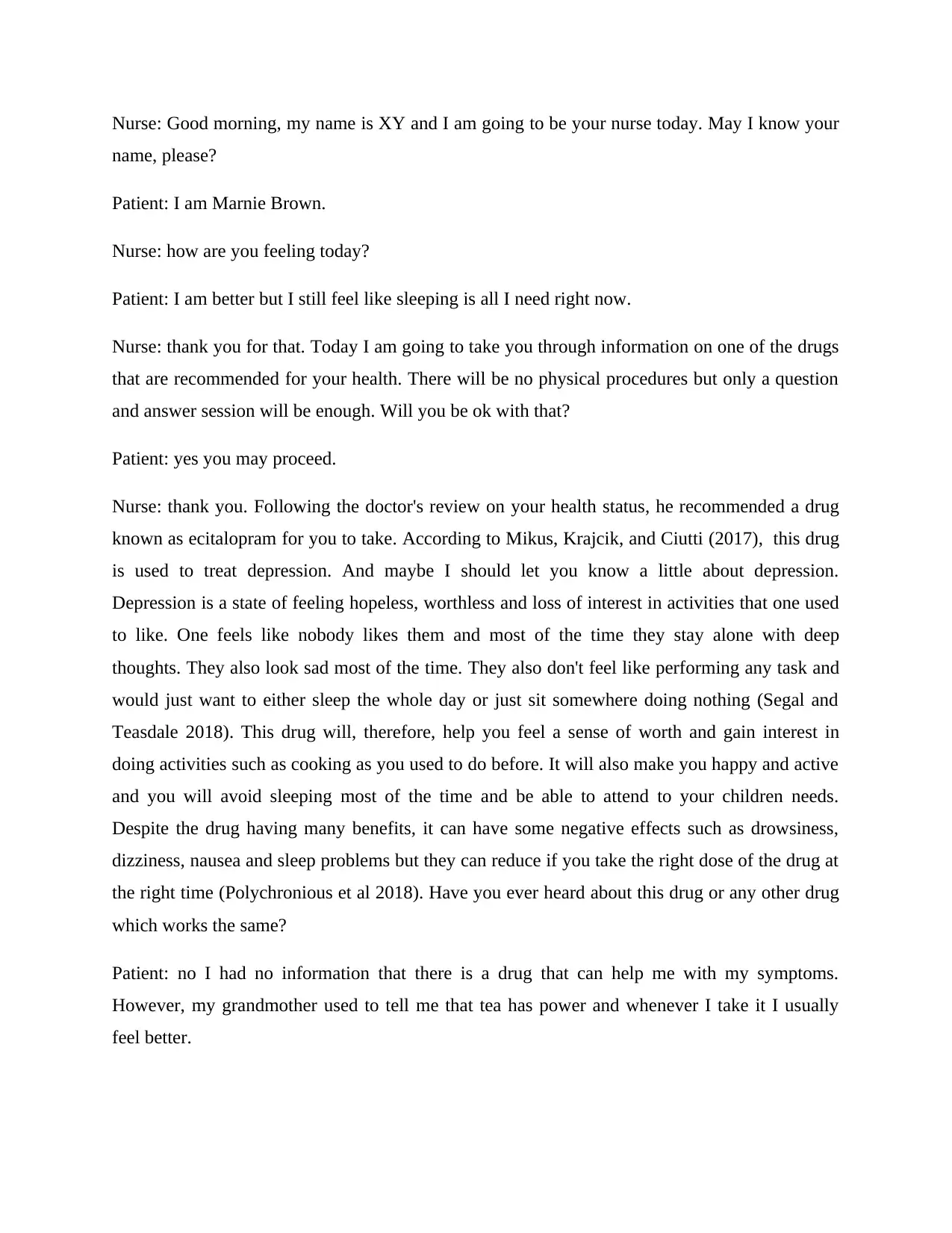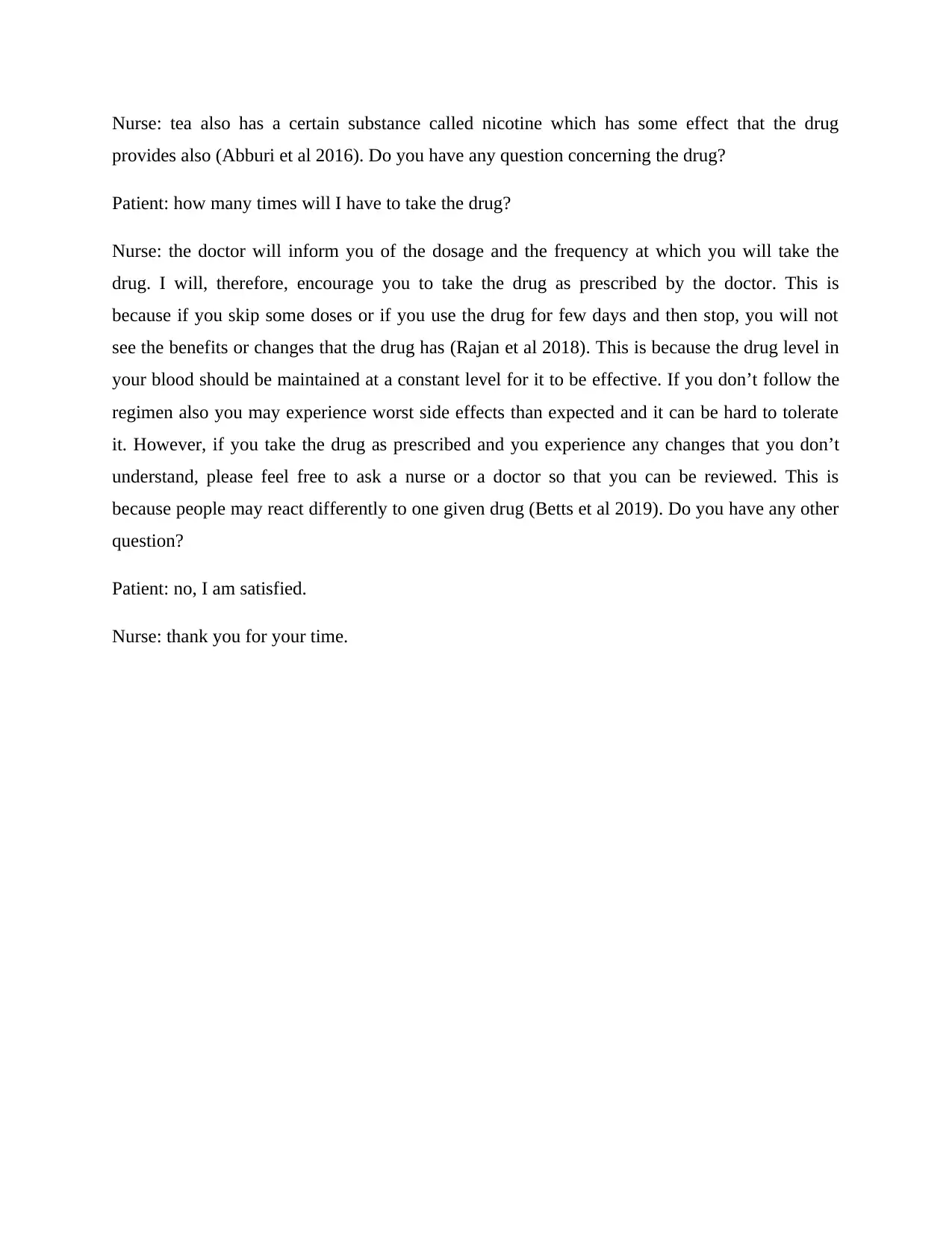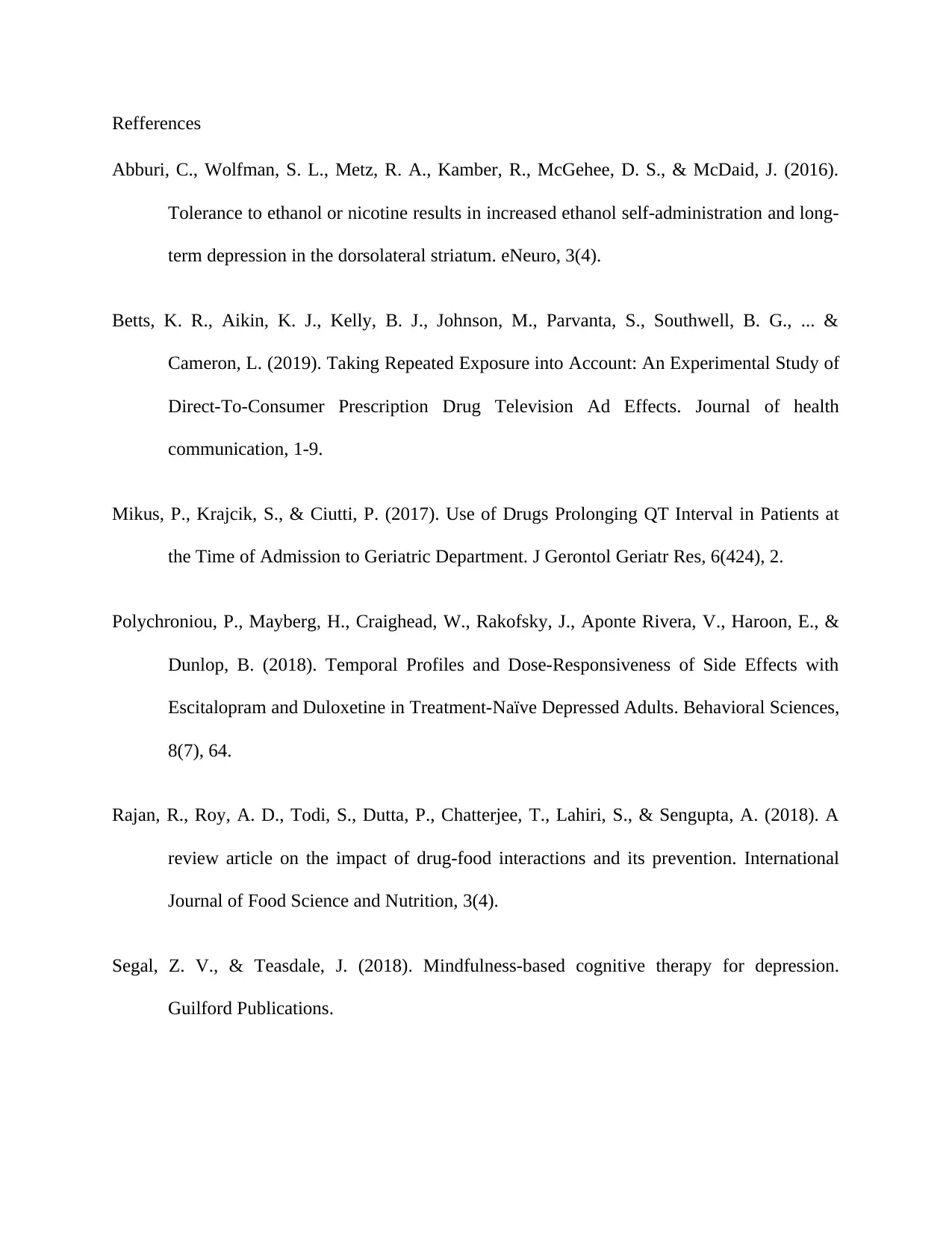NURBN 2010: Patient Education Video for Marnie Brown on Escitalopram
VerifiedAdded on 2022/11/23
|4
|985
|145
Practical Assignment
AI Summary
This assignment presents a video recording of a nursing student providing patient education on the antidepressant medication, escitalopram, to a patient named Marnie Brown. The student explains the drug's purpose in treating depression, its potential benefits like improved mood and increased activity, and potential side effects such as drowsiness and nausea. The student emphasizes the importance of adhering to the prescribed dosage and reporting any unusual changes to a healthcare professional. The scenario reflects a real-world patient case, incorporating elements of the patient's medical history and current condition, and is designed to assess the student's ability to communicate complex medical information in a clear, patient-centered manner. The student also addresses the patient's questions and concerns, providing a comprehensive overview of the medication and its implications for the patient's well-being. The video aims to demonstrate effective patient education skills within the context of a pharmacology assignment for nursing students.
1 out of 4











![[object Object]](/_next/static/media/star-bottom.7253800d.svg)